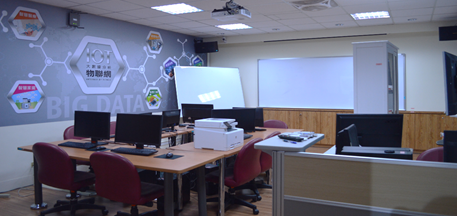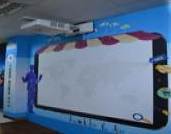Facilities
Facilities
This Department has set up the laboratories for commercial flow, logistics, information flow and payment flow to provide the best teaching and research environment for teachers and students. The existing professional seminar rooms are specified as follows:
Distribution Technology Seminar Room (M301)
(Virtual Store Laboratory)
1. For preparation of artificial intelligence-related projects
2. For preparation of mobile commerce App programming for mobile phones
3. For Near Field Communication (NFC) and iBeacon mobile device application
4. For Augmented Reality (AR) mobile device application
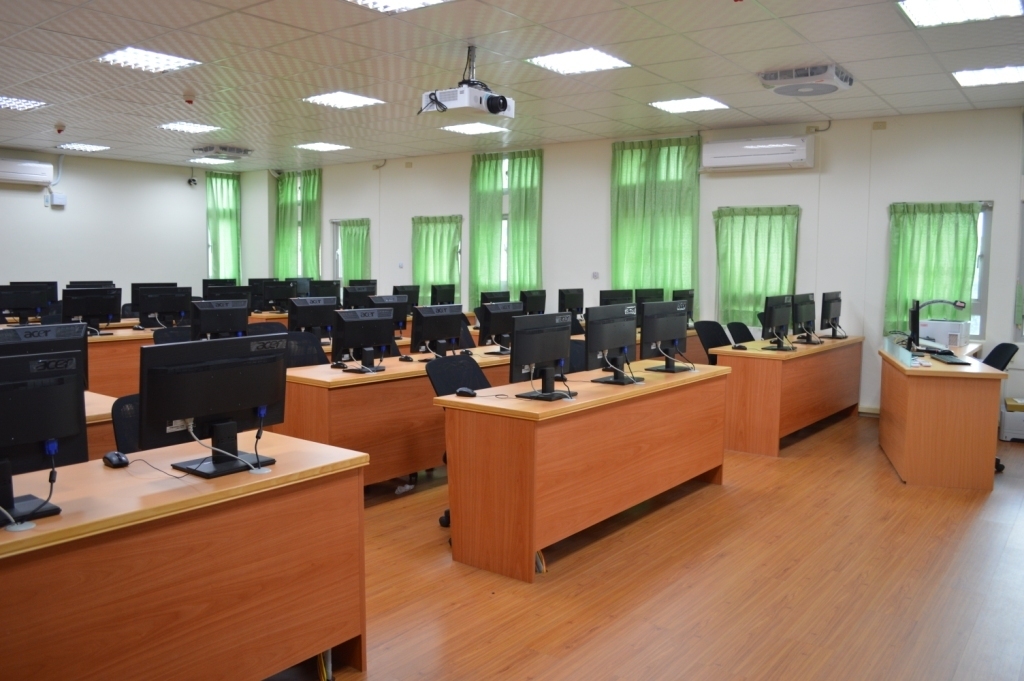
———————————————————————————————————————————————————————————————
E-Commerce Seminar Room (M302)
(E-Commerce Laboratory)
The technologies, such as Internet and e-Enterprise, are used to introduce information technology to the distribution service industry to improve efficiency of distribution management, expand business opportunities, and further explore teaching and research issues relating to personnel, technology, and organizations. At present, the equipment and platforms established for the seminar rooms are mainly the system platforms for e-commerce and distribution enterprise resource planning:
Online Mall Management System (Prowin Net Technology’s EZOpen): It is operated on ASUS TS500 quad-core RAID server, providing students with the overall online mall space and system platform required for courses, practical projects and competitions. Students may practice and be familiar with advanced online store pattern changes, electronic business administration of online stores, and even virtual channel management and planning for overall online mall investments and authorities.
Distribution Enterprise Resource Planning (Data Systems Consulting’s Cosmos ERP): It is operated on IBM xSeries226 quad-core server, providing the enterprise resource planning management system, which fully complies with the existing business rules, for the headquarters and stores in the distribution industry, to help students understand the front-end operation management of a store and cross-regional supply chain, sale, performance tracking and other information flow skills of the headquarters.
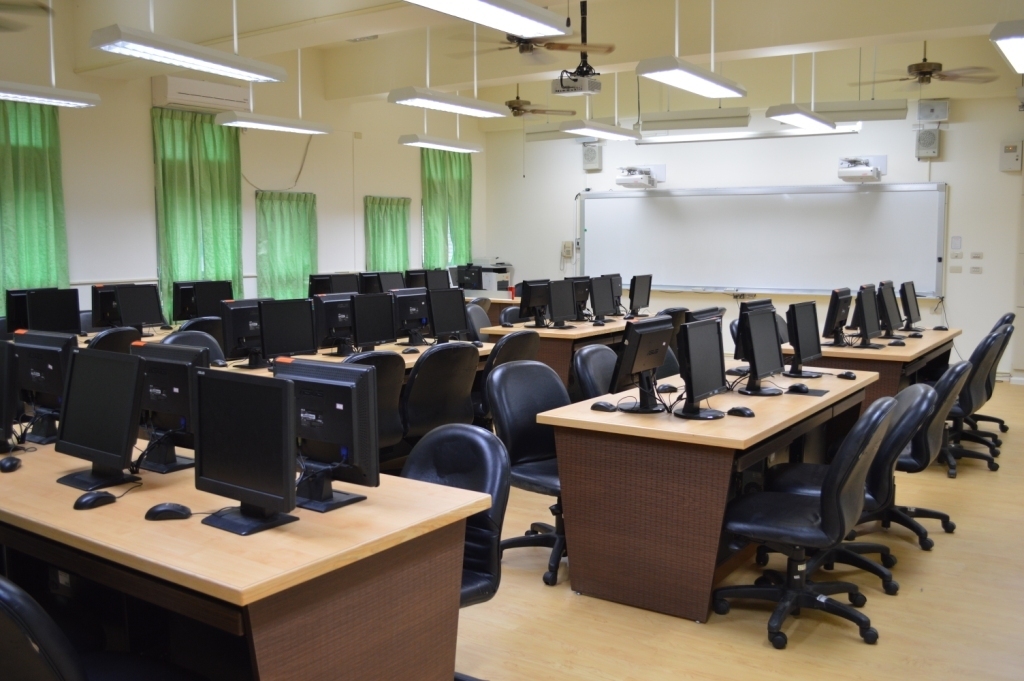
———————————————————————————————————————————————————————————————
Distribution Management Seminar Room (M324)
(Classroom for Retailing Chain Management)
1. For management strategy research for various retail goods and service franchise business
2. With multi-person online management simulation software for VBR retail stores

———————————————————————————————————————————————————————————————
Supply Chain Seminar Room (M325)
(Supply- Chain Application Laboratory)
1. The “Flexsim” simulation software is used for students to simulate the situations that may occur in the supply chain, and enhance students’ ability to respond to the supply chain process.
2. The “iLog” simulation software is used for students to simulate the plan of transportation supply between a logistics center and a retail point, and complete the supply plan with limited resources and minimum cost.
3. Supply chain information is collected to build the supply chain database. Data mining technology is used and a supply chain business intelligence system is established for students to learn capture of more data and make the best decision for the supply chain strategy.
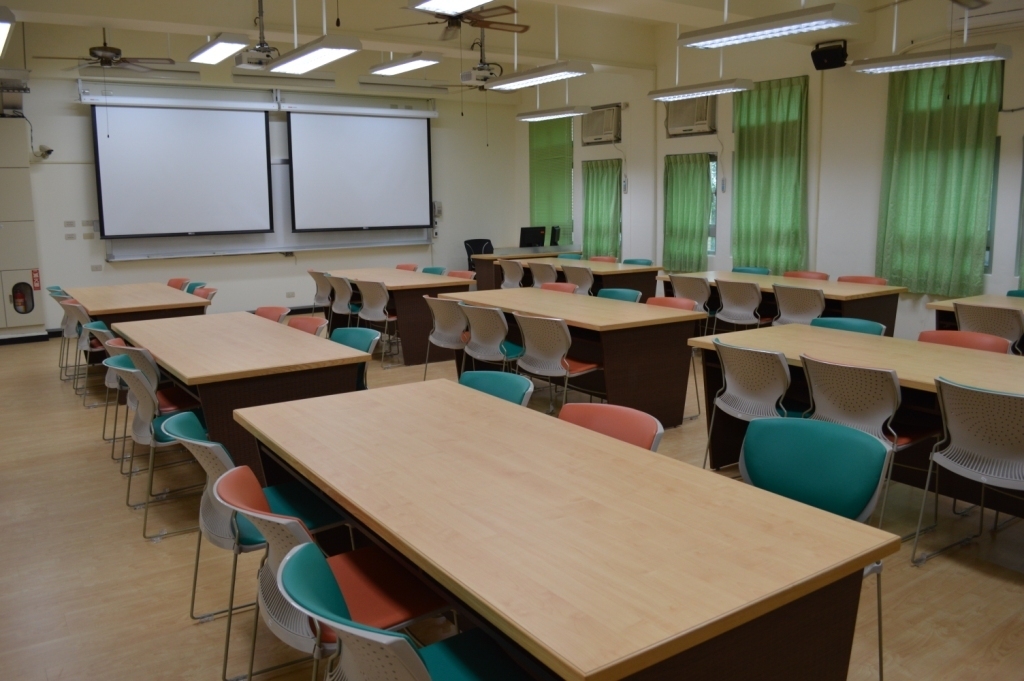
———————————————————————————————————————————————————————————————
Behavioral Science Seminar Room (M326)
(Behavior Science Laboratory)
1. The laboratory is transformed from the human factor engineering laboratory. In early stages, the courses relating to human factor engineering and human machine interface were provided for the needs of Department of Industrial Engineering and Management and for research on transportation, human factors and computer interface.
2. From 2006, for the needs and development of Department of Distribution Management, the courses and practical training programs relating to consumer behavior, store planning and design, personnel environment design and human resource management for physical stores and network environment are provided based on existing teaching and research energy.
3. Laboratory equipment and research space are provided for performance of the projects for Ministry of Science and Technology and industry-academy cooperation projects.
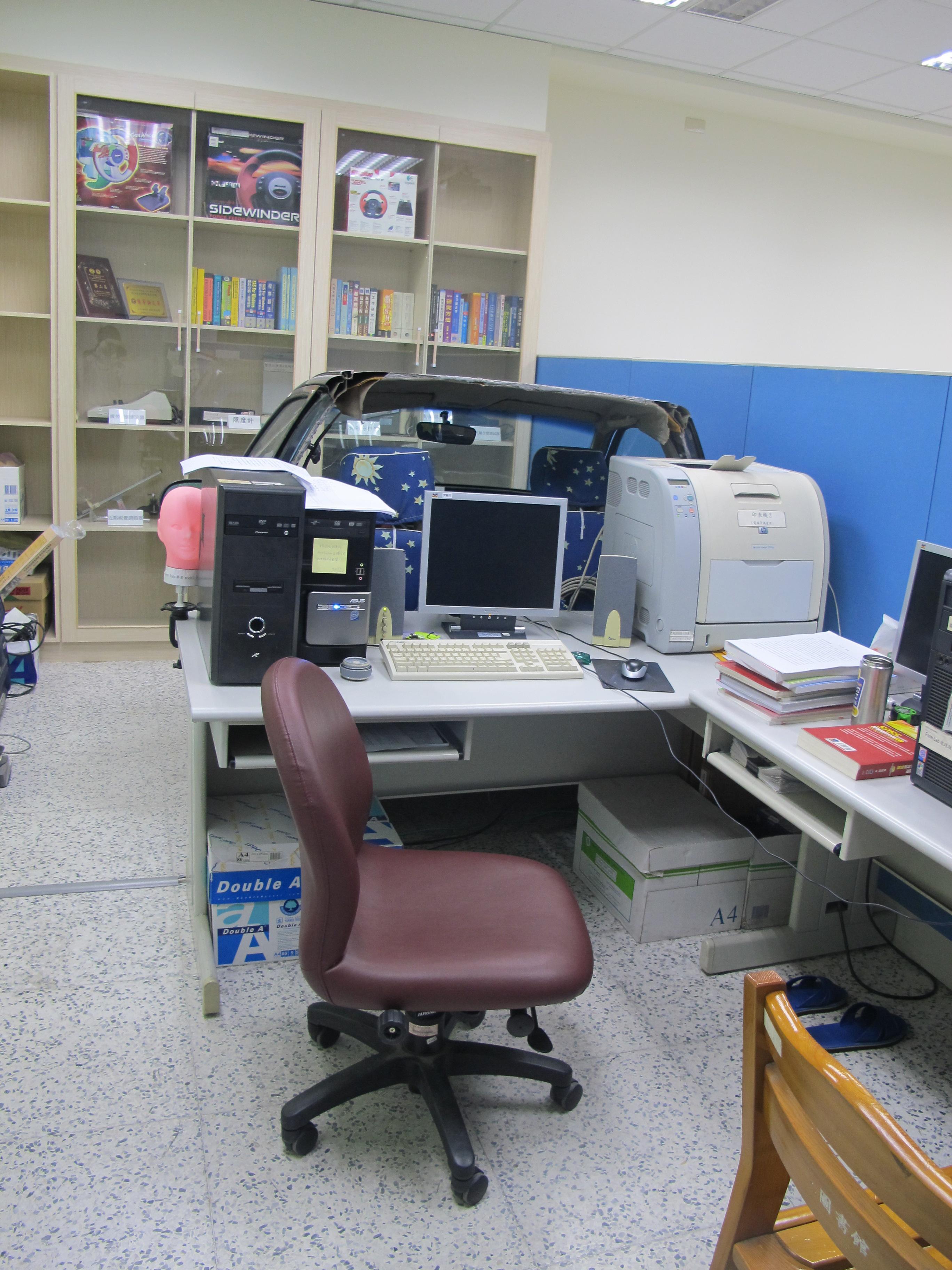
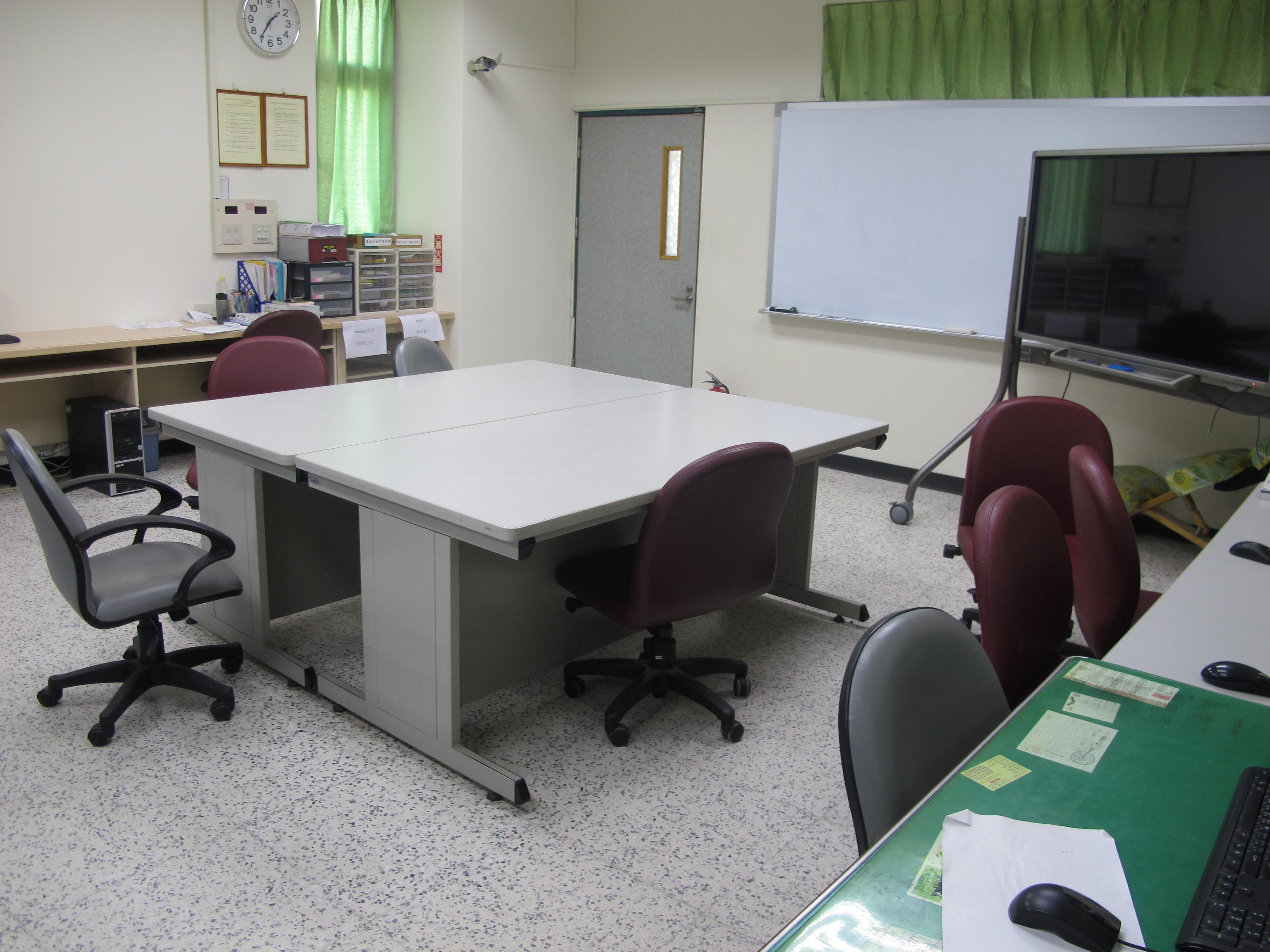

———————————————————————————————————————————————————————————————
Service and Marketing Management Seminar Room (M327)
(Classroom for Service and Marketing Management)
The laboratory is defined and used as a teaching laboratory. It can be used:
1. As a multimedia classroom for teachers to teach the courses relating to service management and marketing management, etc.;
2. As a place for students to prepare report, do assignments and discuss academic questions;
3. To provide students a place and equipment needed for preparing projects and publishing theses, etc.;
4. To facilitate the teaching and case studies by using its design of lecture room;
5. To provide a place and equipment needed by the students taking off-campus internship courses and returning to school to report and share opinions;
6. To provide a place and equipment needed for teachers to teach the courses assisting students in acquiring professional certificates and license.
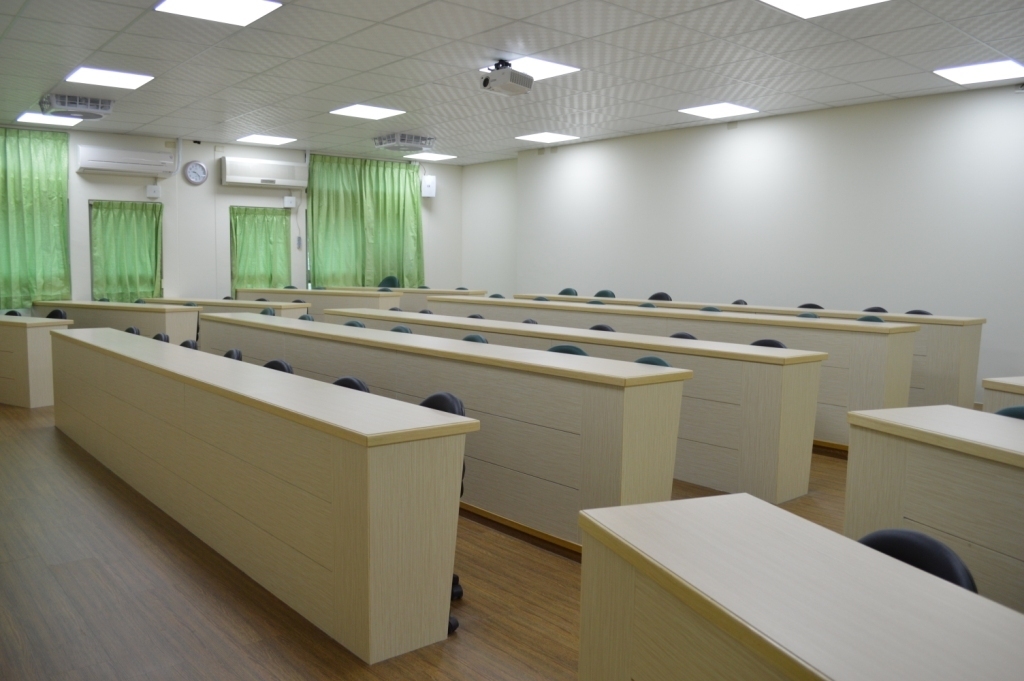

———————————————————————————————————————————————————————————————
Investment and Decision Analysis Seminar Room (M328)
(Classroom for Investment and Decision Analysis)
1. The software and hardware required by undergraduate courses, such as statistics, accounting, cost accounting, management accounting, financial institutions and markets, financial management and investment, are provided.
2. The software and hardware required by the courses in the master’s program, such as multivariate analysis, financial management, management accounting and regression analysis, are provided.
3. Students are supported for practical projects concerning investment analysis, multivariate analysis, risk analysis and other relevant issues.
4. Through the Internet and multimedia teaching system, teachers and students may access economic statistics from the websites of governments and other agencies any time.
5. The domestic distribution industry is prosperous. Franchising has become the trend for the growth of an enterprise. However, the competition among enterprises is also getting fiercer and fiercer because homogeneity and business imitation have made it difficult to maintain the benefits of innovative services. Enterprises encountering competition for survival must proceed with enhancement of business efficiency. The most significant feature of the seminar room is to measure the relative business efficiency of domestic distribution enterprises.
6. Decision analysis package software, such as DEA, AHP and ANP (SUPER DECISION), etc., are used. A user-friendly platform is built to use the daily operation information of industrial-academic cooperation partners, make the enterprises understand the relative business performance of each of their internal organizations, and provide the improvement direction and strategic explanations.
7. By assisting a company in measuring its business performance and interacting with the enterprise, students (graduate students, students working on projects) are able to understand the practical operation of the company, accumulate learning experience and be familiar with the operation process of software.
8. Audio and video files of the operating process of the decision analysis package software, such as DEA, AHP and ANP (SUPER DECISION), are established and helpful to new students’ learning and graduates’ experience being passed on.
9. The online system of teaching performance assessment methods is established.
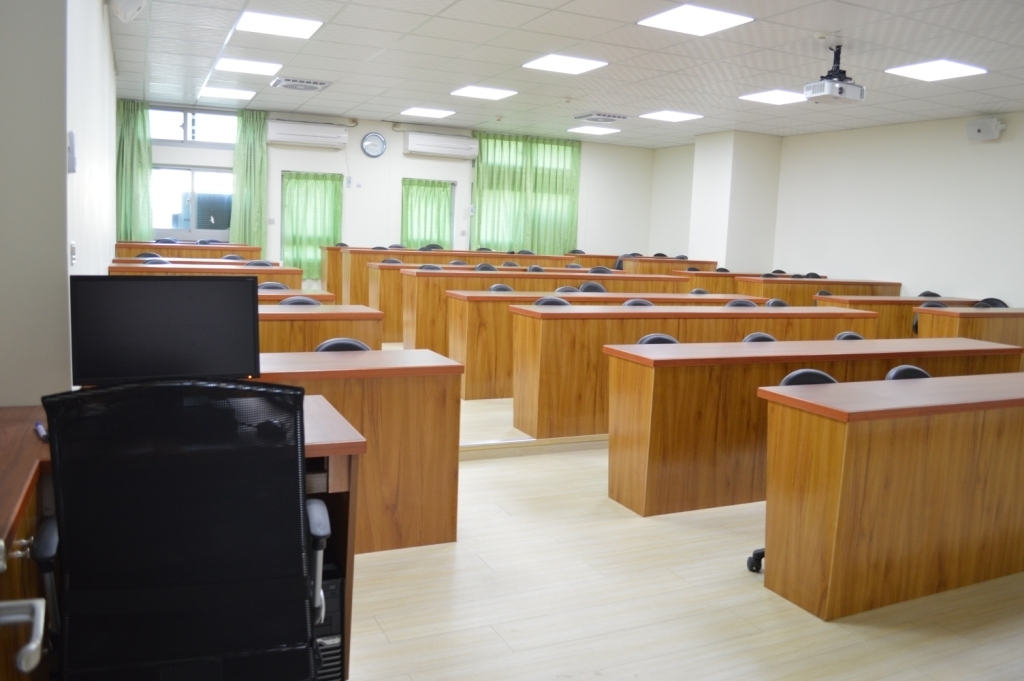
———————————————————————————————————————————————————————————————
Mobile Commerce Seminar Room (M323)
(Mobile-Commerce Laboratory)
1. Mobile Commerce (M-Commerce) Marketing Management: The mobile commerce marketing management system can provide a complete internship platform for mobile commerce marketing so as to combine teaching with corporate practice. Mobile commerce marketing management is performed through Wi-Fi and wireless network of a mobile processor, and uses mobile phone camera to detect bar codes. Main functions of mobile commerce marketing management equipment include product information browsing, product ordering, order inquiry, online store opening, product category maintenance, location data management and QR Code generation.
2. Mobile Supply Chain Management (m-SCM) (Mobile Enterprise Management System): The mobile supply chain management system is a practical environment that integrates mobile commerce and supply chain management systems to provide complete distribution system management. The mobile supply chain management system is also performed through Wi-Fi and wireless network of a mobile processor. Main functions of the mobile supply chain management equipment include purchase function, sales function, inventory function, member management interface (order inquiry) and manager management interface (product category management and product data management).
3. Location-aware Business Management: To provide customers with better services, mobile commerce services require more detailed personal information (personal profile and location information). In the process of mobile commerce service, while the user is holding the mobile device, the system can detect the location information of the user through the location-aware technology (QR Code or GIS technology) and then provide location-aware services to start marketing management and tourist attraction marketing.
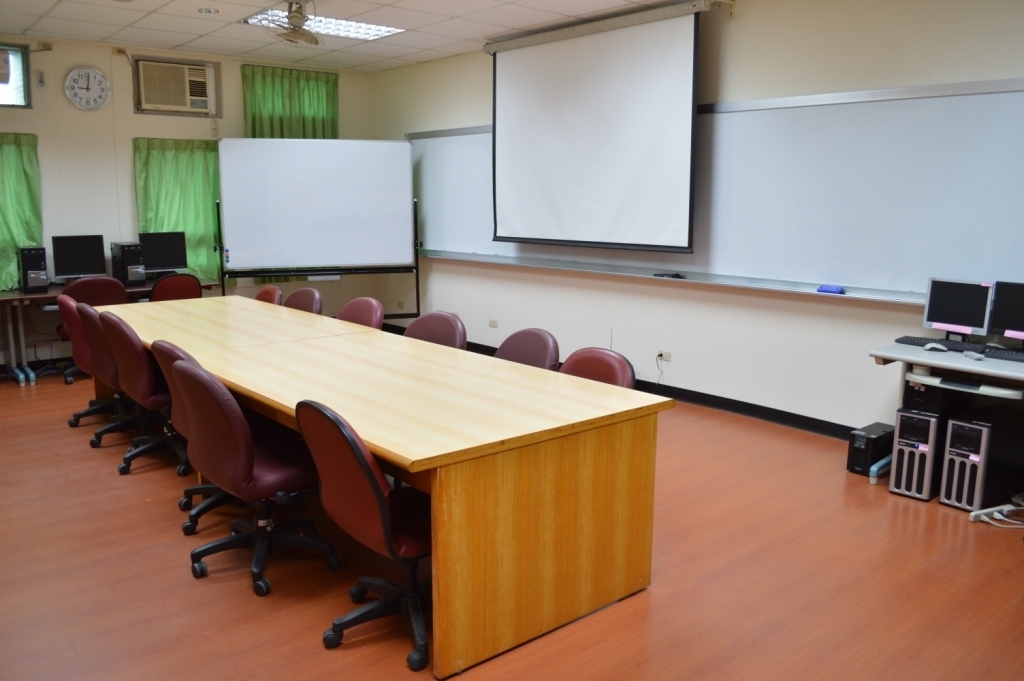
———————————————————————————————————————————————————————————————
Big Data & IOT Seminar Room (LA107)
(Big Data & IOT Laboratory)
1. An integrated platform to manage e-commerce order/delivery and merchandise data is provided for managers/suppliers and consumers.
2. The basic information of a supplier is provided for the manager to review. After the review, a username and password are sent to the supplier for e-commerce-related operation.
3. Suppliers are able to edit and modify product information and upload multimedia videos, and QR Codes are automatically generated.
4. Consumers are allowed to shop and use the mobile device to read the bar code (QR Code) to check product information (including multimedia videos) and log in to shop.
